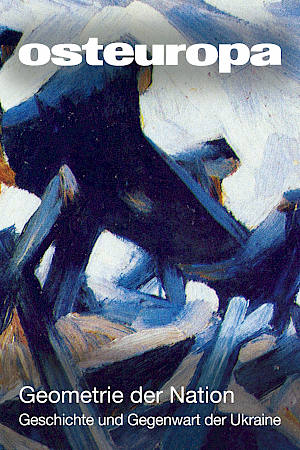The Soviet Legacy
Territories, Borders, and Their Relevance for Today
Deutsche Fassung
Abstract
When the Bolsheviks organized the administration of the Soviet state a hun-dred years ago, they did so primarily according to national-ethnographic principles. They deviated from this as soon as they saw the “interests of the Union” at risk. In territorial revisions between the Union republics after Stalin's death, economic issues were crucial. Ideological constructs such as “friendship of peoples” or “gifts” between the Union republics were not categories in Soviet spatial thinking. Today, economic aspects and access to water play an important role in territorial conflicts and wars in the post-Soviet space. This applies to Crimea, the border war between Kyrgyzstan and Tajikistan, and the wars in the South Caucasus.
(Osteuropa 12/2023, pp. 113–126)



